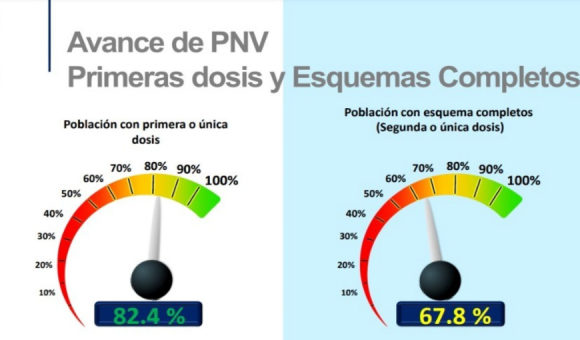Health Institute Study Indicates 27% of Medellin Residents Already Infected with Covid-19

Colombia’s National Health Institute (INS in Spanish initials) director Martha Ospina announced November 26 that a seroprevalence study of a statistically representative sample of Medellin residents indicates that 27% of people here likely have already been infected with Covid-19 — and hence show antibodies in their bloodstreams.
While that 27% figure suggests that more than 800,000 people here likely have acquired some level of resistance to Covid-19, the preliminary results shouldn’t be interpreted as indicating that metro Medellin has achieved anything close to “herd immunity,” the INS director warned.
Instead, Medellin metro area residents must continue to wear masks, socially distance and respect all strict health protocols for workplaces, public spaces, transport and home life – with special precautions required for the most vulnerable: people over 60 years old and those with pre-existing health problems, she said.
In comparison to Medellin’s presumed 27% infection level, some 60% of the residents in Leticia (Amazonas department) and 55% of those in Barranquilla have already been infected with Covid-19, the preliminary results indicate, she said.
The full study covers residents of Leticia, Barranquilla, Medellín, Bucaramanga, Bogotá, Villavicencio, Cúcuta, Cali and Ipiales, she added.
Commenting on the preliminary findings, Colombia Health Minister Fernando Ruiz added that “many people in Colombia could have had Covid and been asymptomatic, while other people could have suffered [and might have recovered] from the disease but had not consulted [a doctor or health department], so they were never registered as people who had Covid.”
While those already infected (and now recovered) presumably now have some level of immunity and presumably wouldn’t transmit Coronavirus to others — at least, right now — this situation might only be “temporary,” Minister Ruiz cautioned.
The INS study incorporated “a special technique called chemiluminescence, which has an 86% probability of finding a positive result, and the support of the National Administrative Department of Statistics (DANE) for the definition of a representative sample of people in each one of the cities,” Minister Ruiz explained.
For the study, workers from the national and local health secretariats and the INS have been deployed in the nine target cities to take representative samples based upon demographic factors and risk factors.
By December 20, field sample collections in the remaining cities will be completed, with final results due in January 2021, he added.
















